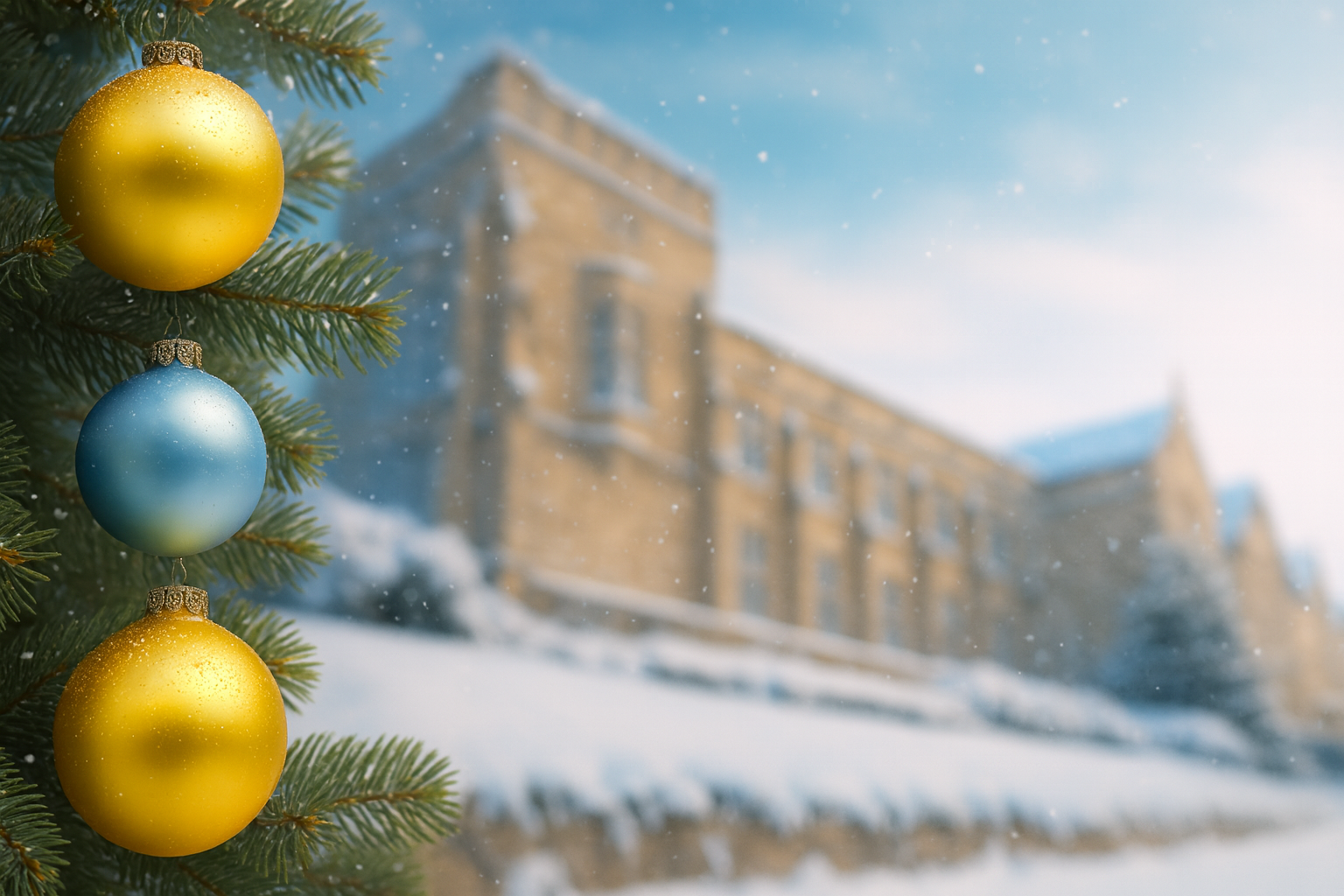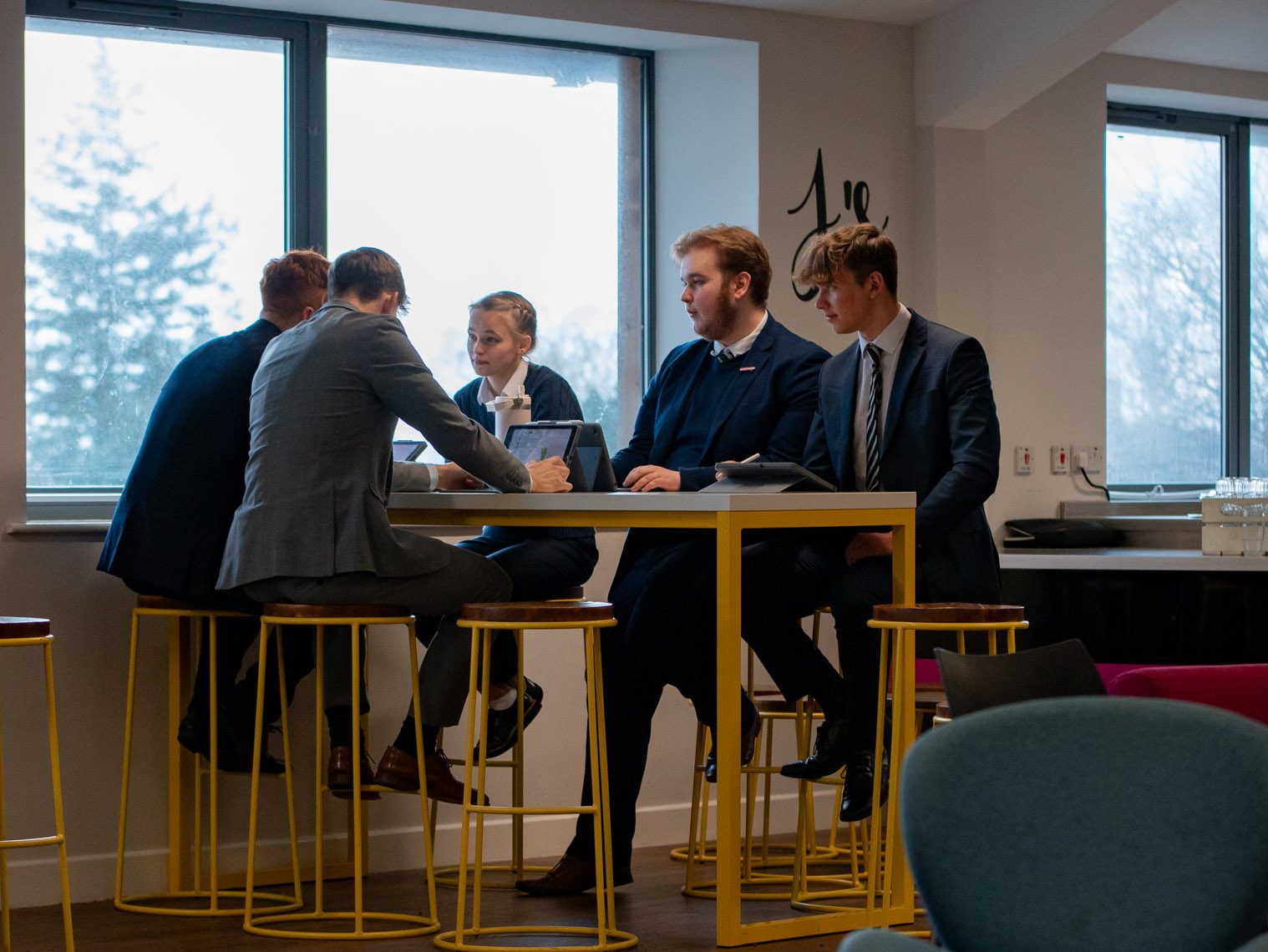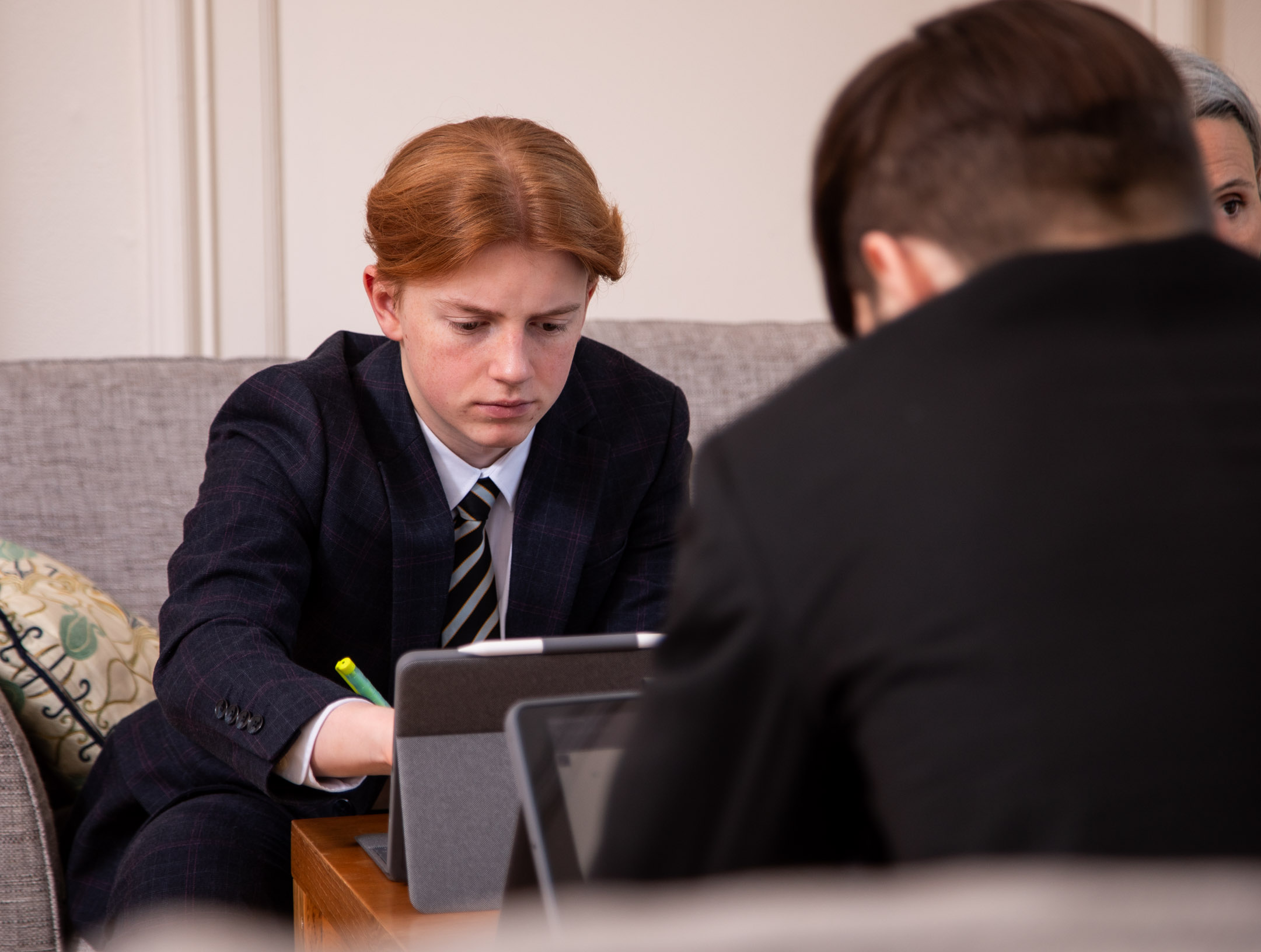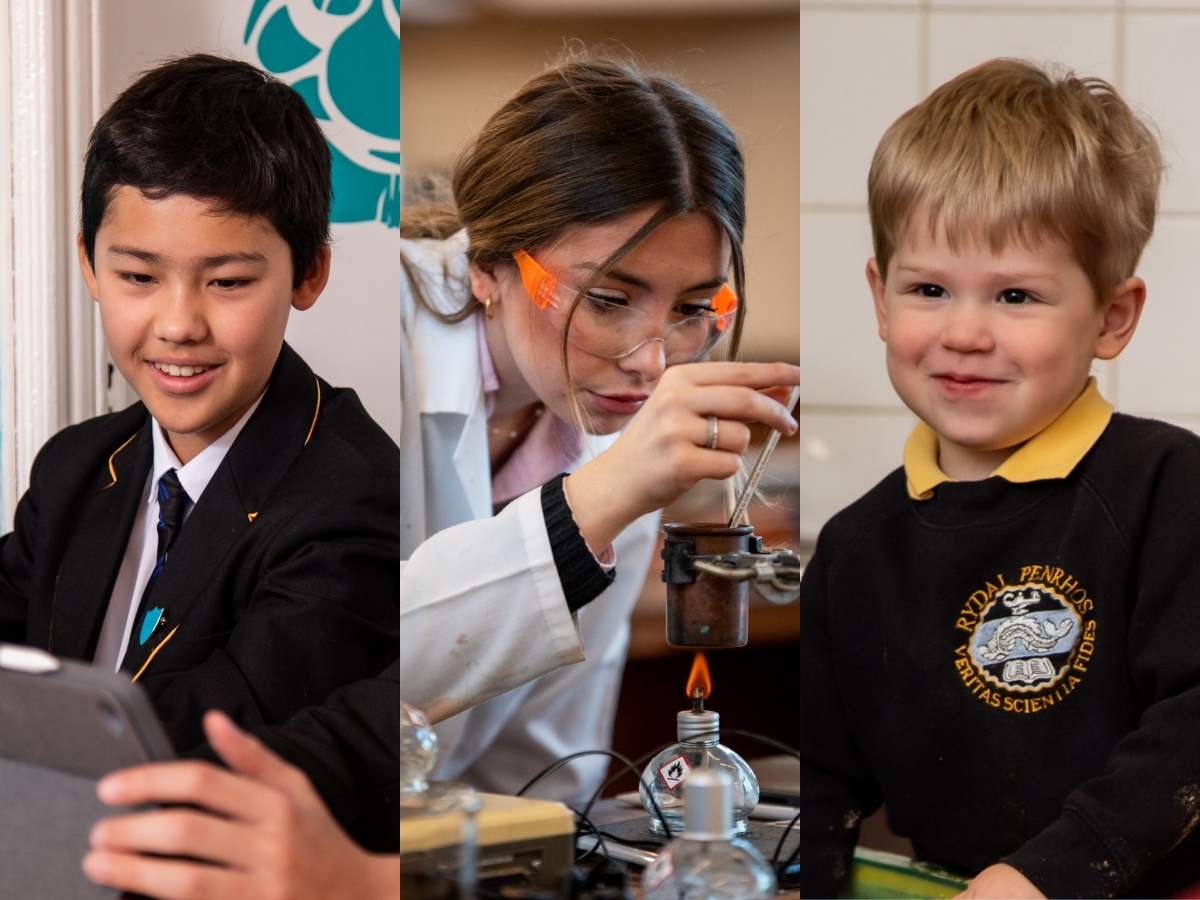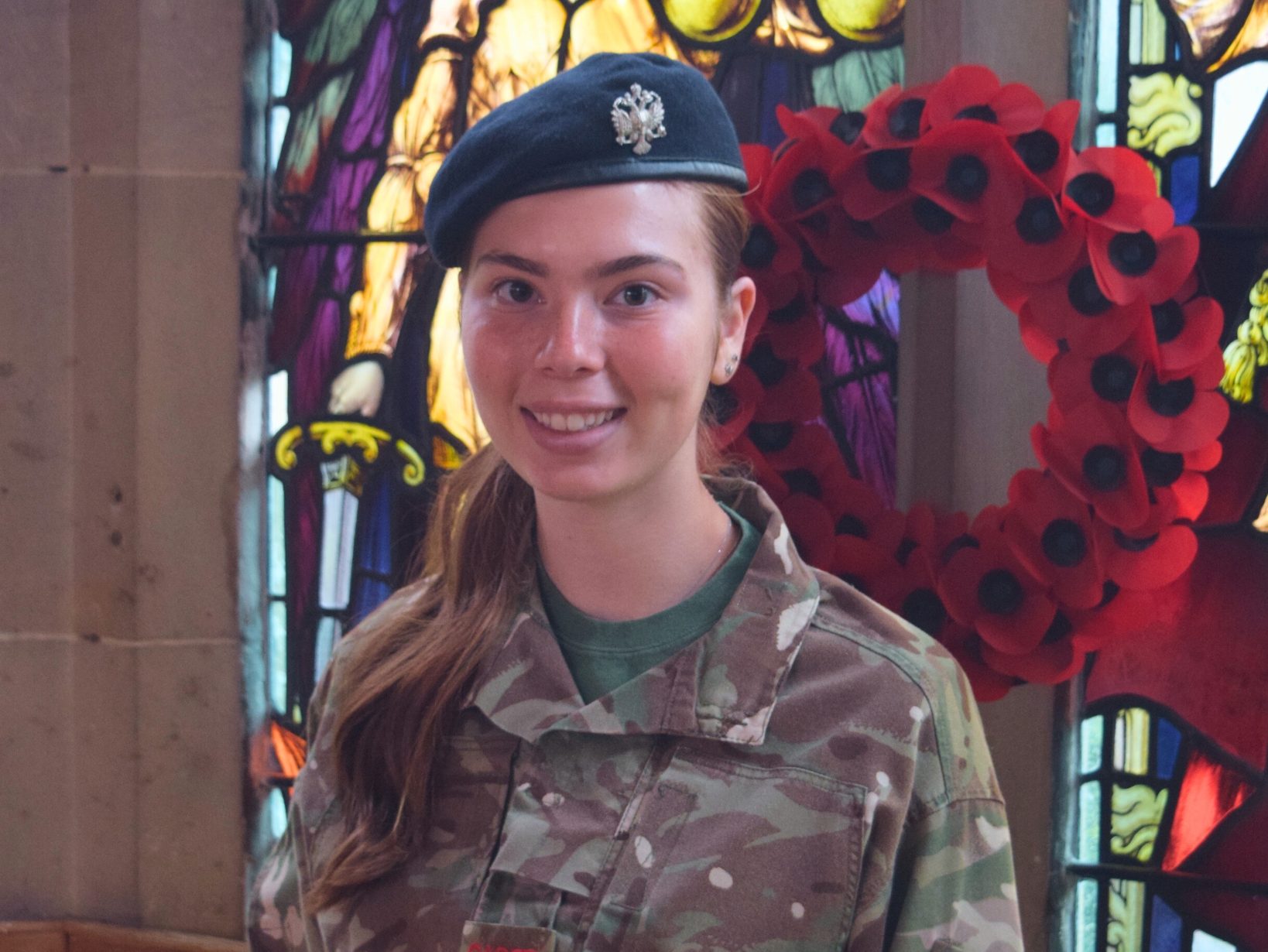
Rydal Penrhos Sixth Former Ceylin Buckley is Lord Lieutenant’s Cadet for Clwyd — the first pupil to hold this prestigious role in our school’s history.
At Rydal Penrhos, the Combined Cadet Force is not just one of the seventy clubs and activities on offer each week; for many pupils it’s a core experience that builds real-world confidence, leadership and service from Year 8 onwards.
From community engagements to field training and annual camp, CCF asks pupils to step up, lead well under pressure and contribute to something bigger than themselves.
Within this context, Sixth Form pupil and CCF Sargeant Ceylin Buckley has achieved a truly exceptional milestone: she has been appointed Lord Lieutenant’s Cadet for Clwyd—the first pupil from Rydal Penrhos to earn this highly prestigious honour. It is an outstanding recognition of her character and contribution, and a proud moment for all our school community.
Before taking up post at the start of term, we caught up with Ceylin about what the appointment means, how CCF has shaped her story, and where she hopes it will lead.
For people who don’t know the role, how do you describe what a Lord Lieutenant’s Cadet does?
“The Lord-Lieutenant represents the Crown in our county; I support the Lord-Lieutenant. I think about it as being his 2IC in a way; respectful, alert and ready to help at civic occasions. You’re there for the bigger occasions like remembrance services or award ceremonies, but also for the smaller details. This can include standing accordingly, speaking clearly, and being attentive. They are appointed annually and are expected to demonstrate outstanding service and contributions to their units and wider community. It’s about service and supporting the community in any way you can to the highest standard.”
How did you feel when you found out about your appointment? Did it come as a surprise?
“I genuinely was so shocked. We were in the car on the way to a university open day and my mum’s phone was on Bluetooth. My Staff Sergeant had called to give the news when it was actually him who put me forward for the role. We all collectively screamed with joy – even my twin brother pulled me in for a hug which is unlike him! I’m grateful for the opportunity as well as excited for what’s to come.”
What did your initial training for the role involve, and what did you take from it?
“When you’re there in the moment, the level of responsibility and honour you have really strikes you. You start by having a briefing then get sent into a sort of conference room. You stand up when the Lord-Lieutenants come in out of respect and you introduce yourself by name, unit, rank as well as your favourite moment in the CCF. There were then further briefings, photos, interviews, then drill and protocol.”
“They also tested our public speaking. Despite being a confident person, I used to struggle with nerves. However, I’ve had opportunities to practice in school through being a House Captain, speaking on the Head Girl’s behalf, and doing chapel readings. You learn to breathe, focus and speak in a collected manner.”
Why did you join CCF originally—and what has kept you involved?
“I remember a teacher at the time encouraging Year 8s to join the CCF. I as a person love structure, discipline, and trying out new things. I stayed because I am constantly trying to grow as a person and love to help other people grow too. It’s different from everything else I do inside and outside of school, and the lessons that it teaches you are so valuable.”
What does your leadership look like week to week with younger cadets?
“With the new Year 8s we start with basics; what’s in a ration pack, how to put up a basha, simple drill. Underneath that you’re teaching patience, discipline and working with other people. Their confidence really develops over time.
“I’ve also learned that in order to gain respect, yelling at people isn’t actually productive. This I learned early on when I got my first rank of Lance Corporal. We are a unit even if I am of higher rank. This means that everyone matters. We can’t be a unit if we miss a piece of our puzzle. Senior Cadets are supposed to lead by example and a true leader doesn’t wave a rank in someone’s face but they instead give people reason to follow them. You’ll never get anywhere if you try to put people down and bring yourself up that way.”
What is your standout CCF memory?
“I achieved Marksmanship my first time shooting live on the range with a Cadet GP rifle a couple years ago. I was nervous when handling the rifle, purely because I know the damage it can cause if not handled accordingly. However, I had the best instructor who really helped me to build up my confidence. I ended up getting a 94 per cent accuracy, gaining the highest score out of the pupils taking part in my school and the other school that were shooting with us. I have since had Marksmanship every other time I have shot because of his lessons and have recently gained Marksmanship first try in shooting the cadet air rifle.”
Beyond the training, there’s a social side to being part of CCF. How important is that?
“Camps can be intense in the best way, both physically and mentally. However, you meet lots of people who are also doing the same things and sometimes even at different times with varying skill levels and experiences. You can also make really close friends in a week because you’re learning and living alongside each other. I myself have made close friends with a set of twins who live on the opposite end of the country, but I look forward to seeing them at every camp I go to and have spoken to them everyday for almost 4 years. I also still talk to a handful of friends I have met at other camps or shooting competitions. This in itself is really valuable as it displays how CCF doesn’t just consist of drill, shooting, and ranks but can also include creating friendships that extend beyond the training environment.”
Tell us about your wider school life at Rydal Penrhos. How has CCF influenced it?
“It relates to everything. I’m House Captain of Osborn, a senior prefect, a peer mentor, and I volunteer all the time. I am also on first-team hockey and first-team netball, engage with school music and sometimes with the drama, and I also play fives. CCF applies to everything that I do and enhances all of these roles, helping me approach them with confidence and resilience whether I am apart of a team or whether I am leading.”
What do you like about Rydal Penrhos?
“I like the one-to-one teaching environment. The teachers have always been very enthusiastic and very helpful, and the pastoral system is really good. I’ve had great advice ranging from university guidance to school matters and it really makes a difference. It is actually why I joined the school. I like the feel of a big school with a close working environment, and that helped me settle in from when I joined in Year 7. I also like the variety of clubs that the school provides and how exceptional the school sports teams are.”
Looking ahead, what are your plans beyond school—and does your Cadet role feed into that?
“I have been set on studying law even before I started CCF. I am also hoping to do my masters and then get right into the working world and build myself up that way. I’ve been looking at Durham, York, Loughborough and Newcastle and am also hoping that once I achieve this, I will be able to apply to the secret services. I believe the CCF was part of what persuaded me to look into this as I want to pursue an intellectually stimulating degree as well as one that really makes an impact. I am also extremely ambitious as a student and am determined to do everything to the highest standard.”
Finally, what would you say to younger pupils thinking about CCF or taking on responsibility in school?
“Really see it through. Do as many things as you can. Do give yourself rest—that’s what I’m not very good at. Be the person to really believe in yourself. I am lucky to have a supportive family who encourage my ambitions. Be the person to see your own worth, keep going with who you are and what you want to be, because it is good enough and you can get there.”
